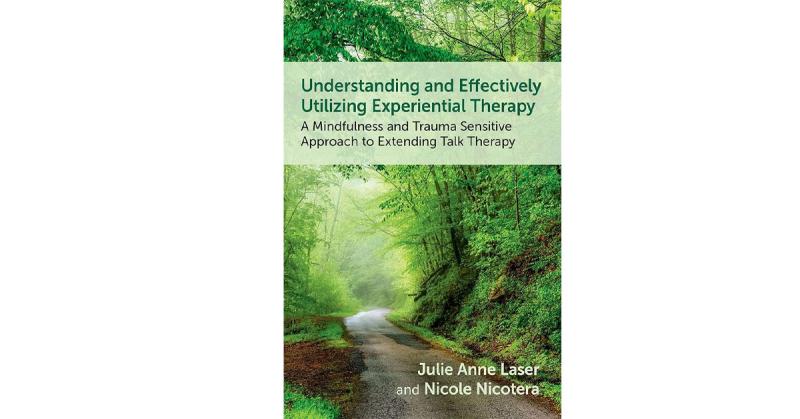Exploring Experiential Therapy
New book teaches therapists to use experiential therapy and mindfulness to help clients heal from trauma

Experiential therapy provides hands-on, engaged, holistic experiences aimed at exploring, better understanding and resolving clinical issues through guided activities, games, mental puzzles, time in nature, and physical challenges. The University of Denver Graduate School of Social Work (GSSW) offers a course about the therapeutic intervention, and now two GSSW faculty members have written a new clinical practice text on experiential therapy.
In “Understanding and Effectively Utilizing Experiential Therapy: A Mindfulness and Trauma Sensitive Approach to Extending Talk Therapy” (Oxford University Press, 2025), co-authors Julie Anne Laser (a retired GSSW associate professor) and Professor Nicole Nicotera detail the use of experiential therapy and mindfulness as therapeutic approaches. The book emphasizes knowledge and skills for supporting diverse clients across a variety of identities to successfully engage in these non-traditional clinical modalities. The text also includes 32 easy-to-replicate experiential therapy activities and outlines the process for creating new experiential therapy activities.
Laser and Nicotera explain that “through experiential therapy, clients can move out of their comfort zone and into a place of new insights and self-discovery, growing their confidence, self-awareness and new coping methods.”
Laser has practiced experiential therapy for more than 25 years and founded Experiential Therapy for ALL, which offers individual therapy, retreats and experiential therapy training. She adds, “The experience is a conduit that gives rise to words, thoughts, feelings and future actions that the client wouldn’t have found through traditional talk therapy alone.”
Nicotera’s research and scholarship focus on health, well-being and mind–body practices. She has also facilitated experiential therapy groups with youth and families. She points out that “integrating mindfulness and experiential therapy with a trauma sensitive approach creates improved outcomes for a wide range of clients.”



